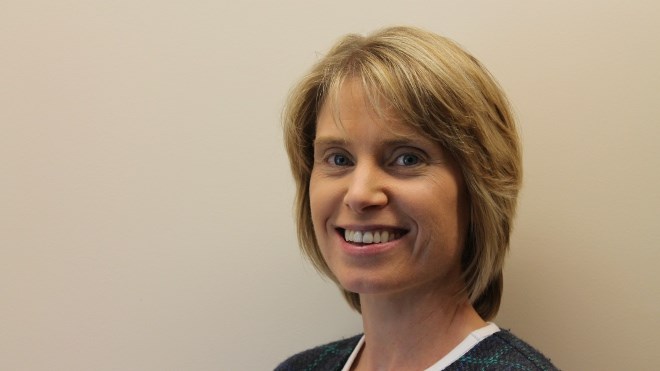Health Sciences North's latest high-profile medical recruit said it wasn't much of a stretch for her to decide to move to Sudbury.
Dr. Rebecca McClure, who arrived in the Nickel City two weeks ago, said she has wonderful memories of childhood trips to Killarney Provincial Park.
She also grew up in a small community near London, Ont., and wanted to come back to her home province.
A molecular pathologist who was one of the first in North America to use next generation DNA sequencing in a clinical setting for the evaluation of cancer, McClure had been working at the Mayo Clinic in Rochester, Minn.
She said she was able to fulfil her dream of working in a smaller city because the technology she uses for her job has progressed to the point that it's much less unwieldy and expensive than it used to be.
Health Sciences North has purchased next-generation testing technology for McClure to work with.
“I guess it wasn't really a hard sell for me, particularly,” she said. “It was a bit of a unique situation for me. It was just a really good fit.”
McClure is one of several specialists well known in their respective fields that have been recruited to Health Sciences North in recent years.
Other examples include geriatrician Dr. Janet McElhaney and Dr. Francisco Diaz-Mitoma, who now heads the hospital's research wing, the Advanced Medical Institute of Canada (AMRIC).
McClure said she's only heard good things about Health Sciences North and AMRIC.
“I know the AMRIC group is growing and has an aggressive agenda for funding basic research and bringing the academic part of the centre here up, and I think that's just great,” she said.
Next-generation sequencing uses new technology to detect diseases quicker and more accurately than standard forms of genetic testing. It allows for quicker results on tests and even information that wasn't previously available.
When DNA sequencing was first developed in the 1970s, it was cumbersome and researchers could only look at small parts of the DNA at one time.
“Now in the last five years or so, what really blew things open was the technology that allows massive high put-through sequencing,” McClure said.
“So we can now look at huge amounts of the gene areas all at once, or even the DNA of the whole patient, all at once, in a relatively short time ... That ability just opens doors in all parts of medicine.”
While McClure focused on cancer research at the Mayo Clinic, she'll be expanding the use of next-generation DNA testing to include hereditary and infectious diseases.
One of the doors the technology opens is what's referred to as “personalized medicine.” McClure will conduct research and develop a program for the Health Sciences North in this area.
She explains that while a disease's symptoms might be similar from patient to patient, there are actually differences in the DNA abnormalities causing the condition.
The results of personalized medicine are more effective treatments, improved outcomes, fewer side-effects and the elimination of unnecessary tests, treatments and costs to the health-care system.
“If we can get in and actually figure out what the real abnormality is in each individual patient, we can find an appropriate drug, or at the very least, tell the medical system don't waste your money, this isn't going to work,” she said.
Beyond her work at Health Sciences North, McClure will also teach at the Northern Ontario School of Medicine, something she said she looks forward to. She said she also taught at the Mayo Medical School.
Dr. Chris Bourdon, Health Sciences North vice-president of medical and academic affairs, said in a press release McClure's recruitment is “quite an achievement.”
“It again demonstrates that we are a destination of choice for some of the leading minds in health care because of our commitment to patient care, innovation, research and teaching.”
Personalized medicine is the new frontier for health care, said Health Sciences North CEO Dr. Denis Roy.
“Having a physician of Dr. McClure's calibre on our team is a tremendous development for patient care here in Greater Sudbury and northeastern Ontario.”
McClure is also an outstanding addition to AMRIC's research team, said Dr. Francisco Diaz-Mitoma, AMRIC's CEO.
“Her expertise in pathology and personalized medicine will lead to breakthroughs in the early detection and treatment of cancers and infectious diseases, which are key areas of research at AMRIC,” he said.
“It's another example of how research and patient care are inseparable.”
NOSM dean Dr. Roger Strasser said McClure's arrival further adds to the medical school's “exceptional” faculty.
“We are proud to collaborate with academic health science centres, such as HSN, to ensure our students receive high-quality education and exposure to ground-breaking research and diagnostics.”
Join Sudbury.com+
- Messages
- Post a Listing
- Your Listings
- Your Profile
- Your Subscriptions
- Your Likes
- Your Business
- Support Local News
- Payment History
Sudbury.com+ members
Already a +member?
Not a +member?
Sign up for a Sudbury.com+ account for instant access to upcoming contests, local offers, auctions and so much more.
